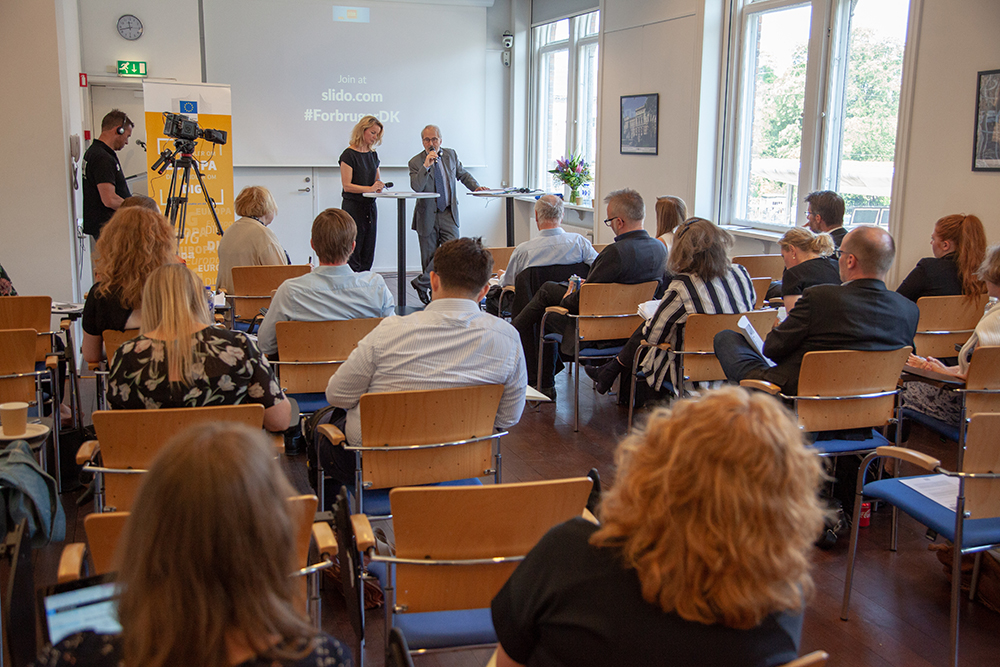Citizens' Dialogue in Copenhagen on the New Deal for Consumers

Related topics
Consumer policydate: 31/05/2018
The European Commission proposed a "new deal" for consumers following the Volkswagen "dieselgate" scandal in which the bloc's consumers, unlike those in the United States, have not been compensated.
Kicking-off the event on Thursday, Jakob Hald, Director General of the Competition and Consumer Authority heralded the purpose of the new Danish consumer policy, which is very similar to what’s being proposed in the New Deal, saying the strategy is not to weaken consumer protection but to modernise it. “We want to keep a high level of consumer protection but to achieve it in a smarter way,” he said.
Among the Nordic countries, Denmark is number one when it comes to online shopping. It ranked first among EU nations in the UN report for conducting e-commerce, with 30 percent of Danish companies making sales online. Most of that business is domestic, however, with just one in ten companies reporting sales to customers in other EU countries.
With that in mind the Commission still harbours some concerns when it comes to European citizens conducting commercial transactions on the web. "We want to make sure that the internet world represents for us, the consumers, than the classical consumer situation," said Francisco Fonseca Morillo, Deputy Director General for Justice and Consumers.
The EU already enjoys some of the strongest consumer protection laws in the world, but for some present on Thursday more can be done on the digital shopping experience. "Denmark is a small country," said Andreas Maaløe Jespersen, Behavioural Insight Advisor. "We found extensive information obligations very difficult for consumers to understands, with time and timing not often taken into account; consumers often do not understand subscriptions, or are not aware of what happens when they give their consent."
Last year, Vera Jourova, European Commissioner for Justice, Consumers and Gender Equality, fought Volkswagen, the company at the centre of the "dieselgate" scandal, over its refusal to compensate EU customers despite doing so in the US. The episode, along with others such as airlines mass cancellations of flights in 2017, has hardened Brussels’ view that the EU lacks the legal armoury to tackle cases affecting large numbers of people in multiple countries.
“It cannot be cheap to cheat, especially in the globalised world where the big companies have a huge advantage over individual consumers,” Commissioner Jourova said when the proposal was adopted 11 April. “We need to level these odds.”
In what turned out to be a lively discussion with 25 participants in attendance, one of the most sensitive issues revolved around who had the right to represent consumers in cases of mass harm. Benedicte Federspiel, from the Danish Consumer Council, signalled it was now the turn of consumer rights groups to represent those who have been harmed by big corporations in court. According to Danish law, it's up to the Consumer Ombudsman to lead legal proceedings against private companies.
As the Consumer Dialogues travel outside of the Brussels bubble over the coming months, preparations are being made for a November 28 meeting of all Member States in Brussels. The goal is to iron out any differences before the package moves on to the European Council in December, by which time it is expected to adopt a common approach to The New Deal For Consumers.
